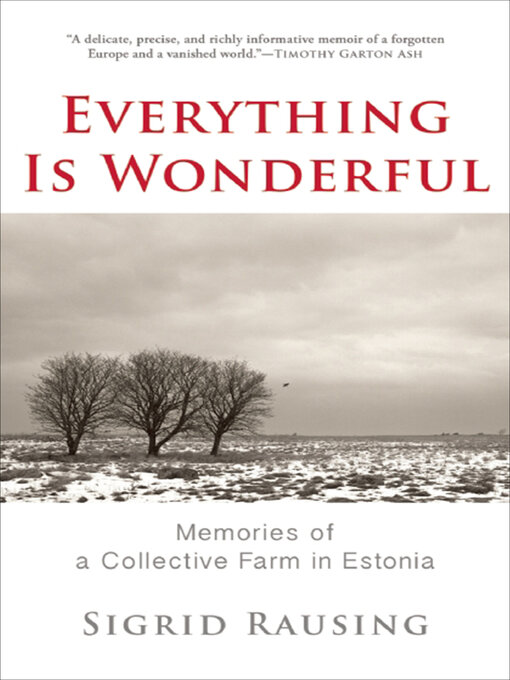- Available now
- New eBook additions
- New kids additions
- New teen additions
- Most popular
- Try something different
- See all
-
Description
-
Details
-
Reviews
A Times Literary Supplement Best Book of the Year
Just like it was taken for granted that houses could be abandoned and slowly decay, so it was taken for granted that people died in prisons, and that it was possible that no-one would really ever know the cause of death. This is the nature of totalitarianism . . .
In the early 1990s, after the collapse of the USSR, Sigrid Rausing completed her anthropological fieldwork on the peninsula of Noarootsi, a former Soviet border protection zone in Estonia. Abandoned watch towers dotted the coast line, and the huge fields of the Lenin collective farm were lying fallow, waiting for claims from former owners who had fled war and Soviet and Nazi occupation.
Rausing’s conversations with the local people touched on many subjects: the economic privations of post-Soviet existence, the bewildering influx of western products, and the Swedish background of many of them. In Everything Is Wonderful Rausing reflects on history, political repression, and the story of the minority Swedes in the area. Here she tells her story of what she observed as she lived and worked among the villagers—witnessing their transition from repression to freedom, and from Soviet neglect to post-Soviet austerity.
“A delicate, precise, and richly informative memoir of a forgotten Europe and a vanished world.” —Timothy Garton Ash

OverDrive Read
- ISBN: 9780802192813
- Release date: March 14, 2014

Loading
Formats
OverDrive Read
subjects
Languages
English
